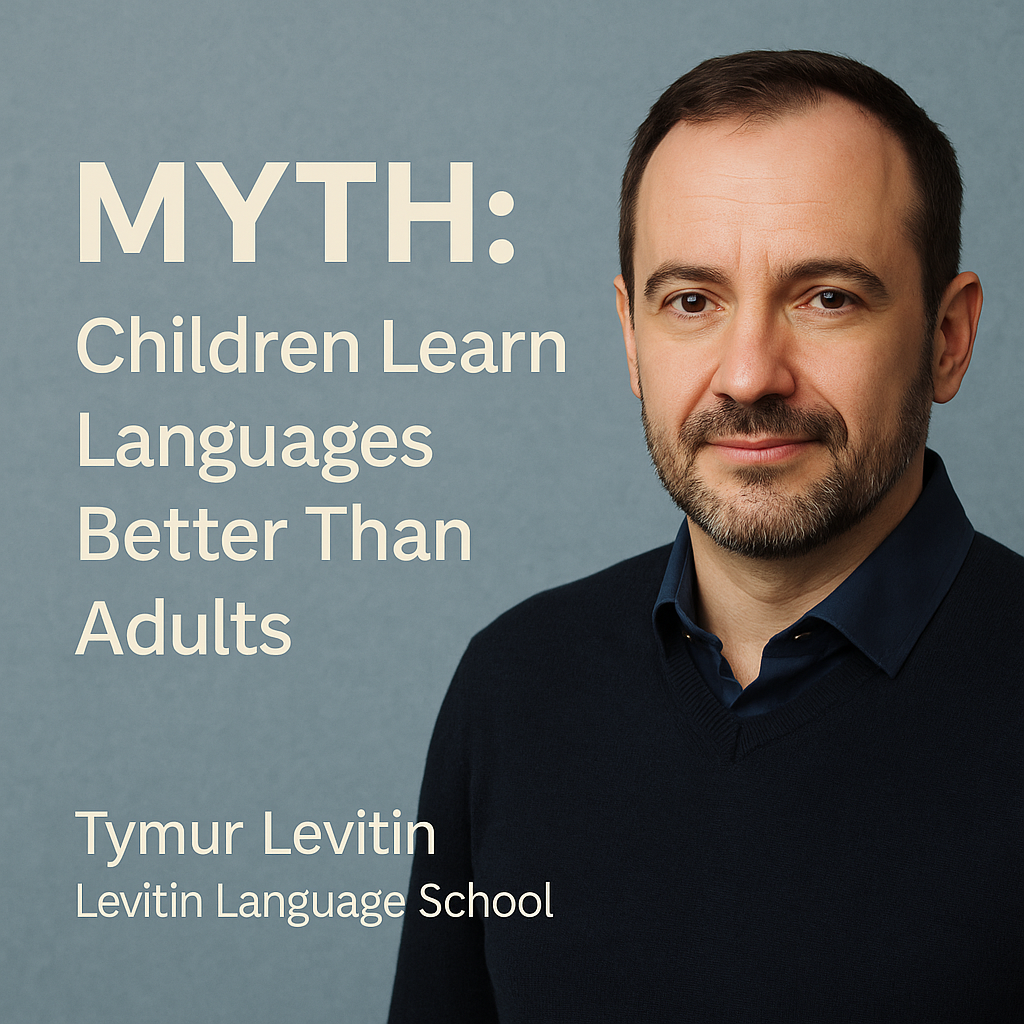🧠💬
The Assumption We All Grew Up With
From childhood, we’ve been told: “Start young — children are language sponges!”
Teachers, textbooks, and even scientists have repeated it for decades.
But is it true?
At Levitin Language School, we don’t follow myths. We follow results.
And results show: adults can learn languages just as effectively — and in some cases, even more deeply — than children.
Let’s break it down.
What Children Have on Their Side
Yes, children have certain biological advantages:
- 🧠 More neuroplasticity
- 🎧 Better natural listening skills
- 🗣️ Less fear of making mistakes
But they also have major limitations:
- ⏳ Very slow progress
- 👶 Limited vocabulary and understanding
- 🤷♀️ No conscious awareness of grammar or structure
A 5-year-old child immersed in a language environment may need years to speak fluently.
An adult can achieve B1–B2 level in less than a year with focused lessons and meaningful content.
What Adults Bring to the Table
Adults are not behind. They’re ahead — in many ways.
- 🧩 Adults can understand grammar logically.
- 📚 They already know how language works in principle.
- 🧠 They can form complex associations between languages.
- 💬 They can ask questions, compare, analyze, reflect.
- 🔁 They remember not only words, but ideas and emotions behind them.
That’s what we teach at Levitin Language School — not repetition, but recognition. Not drills, but depth.
The Real Problem: Not Age — but Approach
What holds adults back is not biology. It’s trauma.
It’s school experiences filled with red ink and grammar tests. It’s teachers who said “You’re not good at languages.”
We help students overcome that. We show:
- Learning isn’t about perfection.
- You don’t need to be a child again — you just need to be curious.
- Grammar is not rules — it’s perspective.
- And you are more ready than you think.
Who Learns Faster — a Child or a Motivated Adult?
If both start today, and both have access to regular, engaging lessons…
💡 The adult will often reach higher levels faster — because they have intention, motivation, and life experience.
That’s why at our school, we don’t limit students by age.
We have learners from 4 to 86. And many of our most advanced students are over 40.
They don’t ask, “Am I too old?”
They ask, “What’s the next step?”
And that’s what matters.
Choose Your Language →
🔗 https://levitinlanguageschool.com/#languages
📚 Related Posts
- Stop Memorizing. Start Thinking.
- Myth: The More You Memorize, the Better You Get
- I Never Taught Grammar — I Taught Perspective
📌 Author: Tymur Levitin, Founder and Senior Language Instructor
📌 School: Levitin Language School / Start Language School by Tymur Levitin
📌 Meet the author: https://levitinlanguageschool.com/teachers/tymur-levitin/
🔖 Speak Free. Learn Smart.
© Tymur Levitin. All rights reserved.
Published: 2025-08-18














